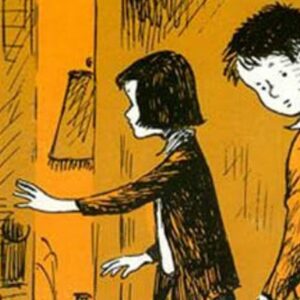Hello, thriller fans, and welcome to deep winter. There is lots to choose from, and I do hope that one of my favorites becomes your next read. If none of these suit you, fear not—the new installment in Stephanie Barren’s Jane Austen series, The Year Without a Summer, was a witty read. If you liked Lola on Fire, Rio Youers is back with No Second Chances. Anna Pitoniak’s Our American Friend is a clever espionage tale, and Japanese crime writer Fuminori Nakamura’s My Annihilation is a stream-of-consciousness novel featuring the thoughts of chickens at a Purdue plant (no it isn’t, but I might read that). Anyway, these five rose to the top: I present your psychological thriller list for the short and brutal month of February.
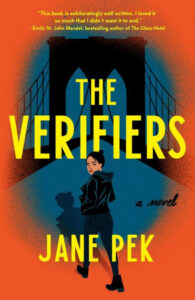
Jane Pek, The Verifiers (Vintage)
Pek has a neat premise: her protagonist, Claudia Lin, is an Asian-American trying to sidestep her family’s expectations: she does not want to become a lawyer or marry someone her mother fixed her up with (actually, she prefers girls). So she lands a job at The Verifiers, a referrals only online-dating detective agency. When one of her clients goes missing, Claudia uses the skills she’s developed from years of mystery reading to try and find him. Pek’s book is funny in a sly way and smart in the way it explores the intersection between identity and technology.
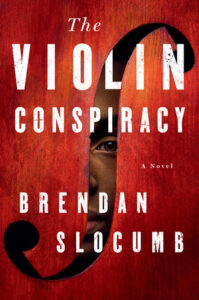
Brendan Slocumb, The Violin Conspiracy (Anchor Books)
Generally, I avoid hype. Plenty of buzz books (that is an industry term) are not that buzzy when you look beyond the blurbs and the cover art. Slocum’s book, however, is something I cannot hype enough. The story of an African-American violinist whose beloved and valuable Stradivarius is stolen delves into the world of art theft and the world of classical music and comes up with something that feels fresh and original. This is Slocum’s first novel and I hope not his last.
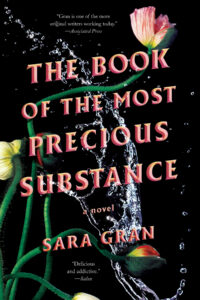
Sara Gran, Book of the Most Precious Substance (Dreamland Books)
Where is the sex in crime fiction? It’s a question I think about every seven seconds—I mean, a lot. I did a delightful roundtable on the topic but the questions keep coming. It was also something I asked Sara Gran when she told me what the premise of her book was. A down-on-her-luck rare book dealer goes in pursuit of a rare book—a 17th century book about sex magic. It’s either the most powerful book on magic ever written or it doesn’t exist. Gran wants to revive the erotic thriller, and she more than succeeds.
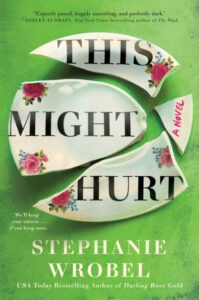
Stephanie Wrobel, This Might Hurt (Berkley)
I was a very enthusiastic fan of Wrobel’s first book, a very twisted and delightful tale of a mother and daughter with an unusual but undeniable bond: the mother had caused or helped her daughter fake illnesses for attention and sympathy. Wrobel’s book thought about what life after Munchausen-by-proxy would be, as mother and daughter still had a very strong bond. Strong bonds figure in This Might Hurt, the story of a woman whose sister disappears into a self-improvement center slash cult called Wisewood. When Natalie gets a strange email from Wisewood where her sister, Kim, has gone on a silent retreat, she gets herself up to the private island where the facility is. And then, Wrobel really gets going, and it turns out she is as insightful about cults as she was about mothers who faked their daughter’s cancer. Let’s call her a virtuoso writer about the disturbed.

Kiare Ladner, Night Shift (Custom House)
Debut novelist Ladner has darkness in her bones. Night Shift, a story of a female friendship gone not quite wrong but somewhat strange. Is Maggie in love with her coworker Sabine, a woman whose secrets are not quite hidden by the nights they work alongside each other, exchanging lies and confidences. Night Shift has atmosphere to spare, and the unstable friendship at its core is rendered with the right amount of moodiness.
















